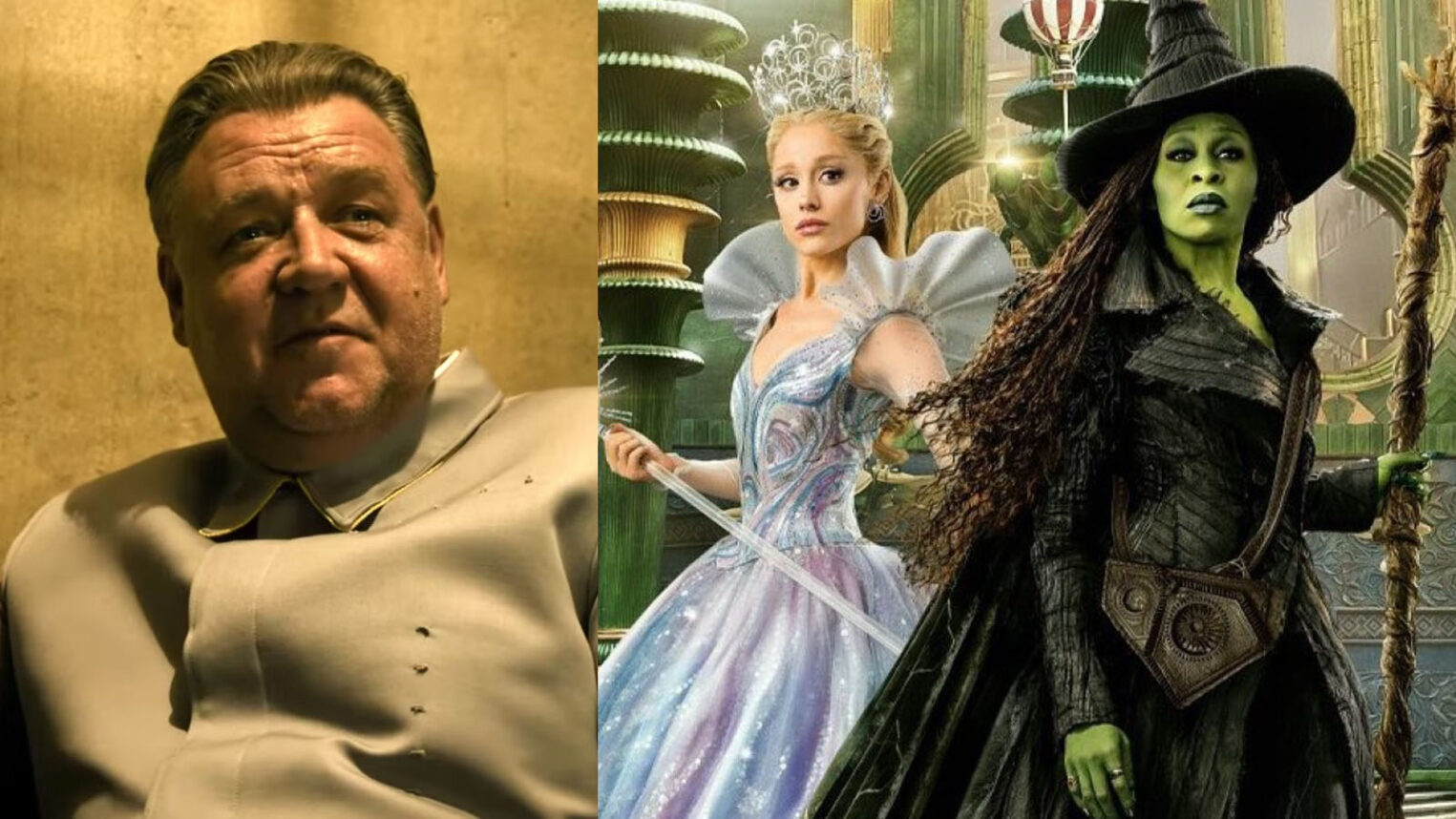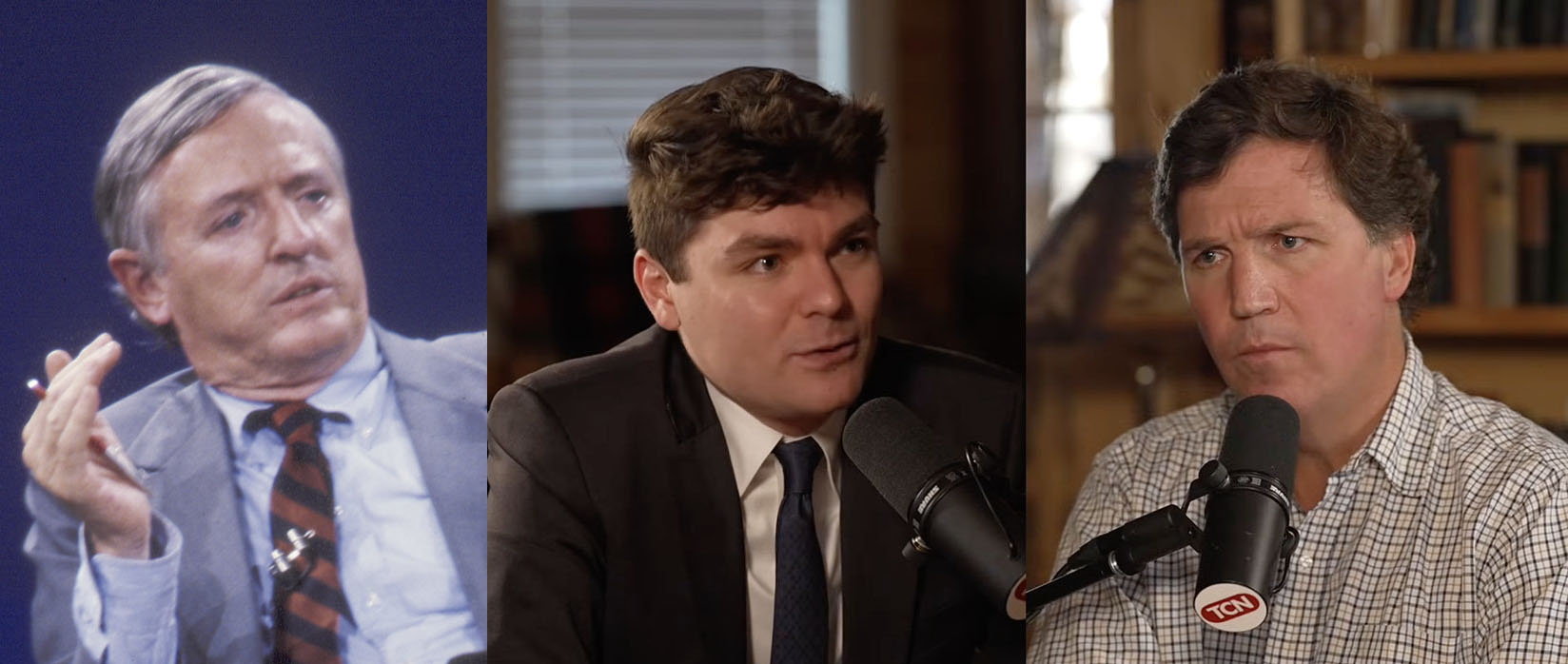Five minutes late to an interview at House Cafe on Beverly Boulevard, Jonah Hill apologizes like a contrite teenager. “I’m sorry I’m tardy,” he says, explaining he’d just flown in from shooting “Neighborhood Watch” in Atlanta and was scrambling to finish his Chanukah shopping. His 28th birthday is the next day, but that’s secondary: “It’s better to give than to receive, right?”
He’s almost adorably awkward, channeling his inner nice-Jewish-boy; this perfect gentleman is not what one might expect from the guy who helped reinvent the modern stoner-slacker in films like “Superbad” (2007), in which his libidinous character had a mouth so foul he could make Howard Stern blush.
Recently he told Stern he didn’t lose his virginity on prom night because he got too drunk and threw up on his girlfriend. During our hour-long conversation, however, nary an expletive nor a raunchy story comes out of Hill’s mouth. Perhaps it’s the context: This is The Jewish Journal he’s speaking to, his parents’ friends and his grandmother will probably read this story, and, besides, Hill has a message to convey: He’s not just that young actor who made us laugh our buns off in comedies like “Knocked Up” and “Get Him to the Greek.”
These days, Hill can count serious thespian, writer and producer among his credits, and last year, the weight of his dramatic chops was in full evidence in both his heartrending turn as Marisa Tomei’s son in the independent film “Cyrus” and in his portrayal of a baseball numbers nerd opposite Brad Pitt in “Moneyball.” Demonstrating his stretch beyond the familiar bawdy R-rated Jonah Hill comedy, his performance in “Moneyball” already has earned him both Screen Actors Guild and Golden Globe Award nominations for best supporting actor in a drama, plus Oscar buzz.
“I’m not saying, ‘Now that I’ve made a “fancy” movie, I’m going to leave comedy behind,’ ” he said. “I’m so beyond proud of the comedies I’ve made. But it’s important for me to note this as a transformation in my career and my life. This period is me becoming an adult, becoming a man. I look completely different; I’ve matured; I’m not just that funny kid you know me as from my early movies. I’m here to do other kinds of things, including dramatic films, as well. I take that really seriously, and you should, too.”
If you’re picturing the Jonah Hill in his most recent flick, “The Sitter,” which was not so well received, or 2010’s “Get Him to the Greek,” which was, put that guy out of your mind. Along with the life-changing experience of his recent dramatic roles, Hill has also slimmed down his overweight physique, and as he sipped iced tea and joked about his newly “girlish figure,” he said his physical metamorphosis reflects the personal makeover within. He has keen blue eyes, and on this day was neatly but fashionably dressed in a Navaho-patterned jacket against the winter chill. During his recent appearance on “The Daily Show,” host Jon Stewart told Hill he looked as if he had taken “handsome pills.”

Hill in “Moneyball.” Photo by Melinda Sue Gordon/Columbia Pictures
“I was embarrassed, even though I knew it was a compliment,” he said, blushing slightly. “Jon Stewart thinks I’m handsome — that’s nice.”
Hill’s life, these days, is distinctly grown up, or at least moving fast in that direction. When we spoke, he was ogling the baby at the next table: “I can see the feet. They’re in, like, these little socks; they’re really cute,” he said, adding, “I’m dying to have kids one day. I think I’ve been put on this Earth more to be a dad than an actor.”
He said he had just spent his first two nights in the home he recently finished building in Los Angeles; it’s a universe away from the frat-boy apartment he moved into when fellow Judd Apatow protégé Seth Rogen moved out. Those were the days when a bong was practically affixed to the dining room table, and Hill appeared on the cover of Heeb magazine, in a pose reminiscent of his lecherous but nuanced “Superbad” character, shmearing K-Y Jelly on his morning bagel.
The shmear was Rogen’s idea, but when I ask more questions involving Rogen et al, Hill’s had enough. “Is this whole interview going to be about Seth?” he asks, laughing, but it’s clear he’s a little frustrated. “I love Seth; it’s not about that. But Seth became famous right before I became famous, right? He made ‘Knocked Up,’ and then, two months later, I made ‘Superbad.’ We looked alike; he became a big movie star before I had been in the movies, and I’ve spent a lot of time being compared to him or whatever. What’s beautiful is, we’ve gone on to do our different things, and we’ve defined separately. I have nothing but love for all my friends, it’s just that I’ve spent five years doing interviews about my friends, you know?”
He’s talking about actors like Jason Segel and Paul Rudd, with whom he came up through the ranks of Apatow’s hilariously creative posse. Some Apatow-niks once jokingly dubbed the circle the “Jew Tang Clan” because of its preponderance of MOTs.
“Jonah has always been funny because his humor is so grounded in reality,” Apatow wrote in an e-mail. “I cast Jonah a lot because he is so smart and has a unique world view. I know I can put him in any scene and ask him to have a strong funny position on something and he will never let me down.” But, Apatow said, he also wasn’t surprised by Hill’s recent dramatic performances. “He was great in ‘Moneyball’ because he’s a very talented actor. … We believe his characters really exist.”
After a bit part in “The 40-Year-Old Virgin,” Hill went on to co-star in a string of other Apatow comedies before having his own face plastered on billboards with “Superbad.” In “Get Him to the Greek,” he plays a music industry lackey who must escort a rock star-junkie to a concert, a journey that involves threesomes, bathroom sex and smuggling contraband in a bodily orifice onto an airplane.
Hill said he’s essentially had to grow up in the limelight, and looking back on some of his early interviews is “horrifying, because when you’re in your early 20s, you can sound like an idiot.”
But even back then, Hill was fiercely ambitious and looking to expand his repertoire. He saw his chance when he met Sundance regulars Mark and Jay Duplass, who in their early films helped kick-start the youthful genre known as “mumblecore.” After viewing their short film “Intervention,” Hill suggested that should any of them become successful, they should make a movie together.
“When ‘Superbad’ became a big hit, Mark and Jay were the first people I called,” Hill said. “They said they’d been writing a movie for me, and they gave me this gift that was ‘Cyrus.’ They were the first people to say, ‘Jonah can do something more, and we believe in him as a dramatic actor, not just some funny kid.’ And they gave me a part in this movie with John C. Reilly and Marisa Tomei, which was very intimidating, but I knew I could do it.”

Jonah Hill in ‘Cyrus’
In “Cyrus,” Hill plays a 22-year-old who is overly dependent on his mother (played by Oscar winner Tomei) and comes creepily undone when she begins dating her new boyfriend (Reilly). “I loved the character because he’s so heartbreaking,” Hill said. “There were so many mistakes made that he didn’t have a fighting chance, and that manifests in dark relationships, especially in the sad relationship he has with his mother.”
Tomei had seen Hill’s comedies before meeting him on the set of “Cyrus”: “I think everyone fell in love with Jonah in ‘Superbad,’ ” she said in a telephone interview. “He’s so intelligent and quick that he’s always able to improvise and to be spot-on. But he also is a great observer of human behavior, because he has a really big heart. So the things that pop into his brain and come out of his mouth have a real depth and soul, even though they may be hilarious.” It was Hill, Tomei recalls, who improvised what would become the film’s tagline: “Seriously, don’t f—- my mom.”
“Moneyball” came into the equation when Hill’s “Cyrus” co-star, Catherine Keener, recommended him to director Bennett Miller. A table reading followed, which was nerve-racking because Hill knew he was still a long shot —both because of his lack of dramatic experience and the “10 other probably Oscar-nominated dramatic actors who were up for the role,” as he put it.
“So I kind of did a ‘Truman Show’ on Bennett, meaning I asked the Duplass brothers for a ‘friends and family’ screening of an unfinished cut of ‘Cyrus,’ which was all b.s. — a ruse to get Bennett into the theater to see me in that film. But Bennett saw the movie, which was all a fake, set-up screening, and the next day I was cast in ‘Moneyball.’ ”
The film is based on a true story, and Hill plays Peter Brand, a repressed Yale math whiz who helps Pitt’s Billy Beane reinvent the Oakland Athletics through a statistics scheme that, in real life, transformed baseball. “The role was extremely challenging because the character, in a way, is the polar opposite of me,” Hill said. “I tend to over-communicate, probably more than anyone should, and to a fault. I can’t hold things in,” he said, laughing.
“But if my character had a thorn in his foot, he wouldn’t say anything to anyone. He’s someone who has an extremely hard time expressing what he is feeling, and uses baseball statistics, in a sense, to communicate his inner life.”
Miller said he went along with Hill’s fake screening ruse, but had already decided to cast him. “You can tell from Judd’s movies that he’s highly intelligent and very present in a scene,” Miller said. “The other aspect of it is I’ve known Jonah for some years, and he is closer to the character of Peter Brand than you might see in some of these other films. He’s very thoughtful, and he can have an authority about a subject coupled with an insecurity.”
Miller also saw in Hill a personal connection with his character and to “Moneyball,” a story about people who have been overlooked because of preconceptions about what they can do. “There are aspects of Jonah’s talent that might not have yet been given their full opportunity,” Miller said. “When you establish yourself as good in one area, people tend to understand and identify you as a particular thing or trait. Jonah was very fast becoming known as a comic actor of a particular variety, and that was great for him, but it could also present a challenge. So, giving him this role didn’t seem like an eccentric, far-fetched, crazy risk.”
Born Jonah Hill Feldstein, the future actor grew up in Los Angeles, a middle child with an older brother and younger sister. His father, Richard Feldstein, is an accountant in the music industry.

Hill with his young charges in “The Sitter.” Photo by Jessica Miglio/Twentieth Century Fox
Jonah attended religious school at Temple Emanuel of Beverly Hills, where he became bar mitzvah in a ceremony he described as “magical”; high school was at Crossroads School for Arts & Sciences in Santa Monica. Because his parents are from Long Island, N.Y., the family sometimes vacationed in the Catskills, where, Hill said, “I saw Borscht Belt comedians who were 100 by the time I was old enough to see them.”
Temple Emanuel Cantor Yonah Kliger also remembers Hill’s bar mitzvah as “magical”: “He was electric, completely captivating, and seemed very comfortable in his own skin, which is a rare thing for a 13-year-old,” Kliger said. “It’s not just hindsight to say I felt this person was destined for something great, though I didn’t know what at the time.”
At Crossroads, communications director Martha Goldstein would say only that the faculty is “absolutely delighted by Jonah’s success.” It was there that Hill made friends with Jake Hoffman, son of Dustin Hoffman, and his ties to that family were hugely influential in his life. (Hill stresses that he doesn’t want to sound “opportunistic, like I was friends with them to get something out of it.” Duly noted.)
Yet Hill as a teenager was an aspiring writer, until Hoffman suggested he try professional acting. So how did Hoffman know he had talent? “I used to make crank phone calls for him,” Hill said. Hoffman had friends he’d have Hill call, as well as assorted strangers; the goal was to get the person to buy into the conversation for as long as possible. “I had this bit where I’d phone people, pretend to be a celebrity’s assistant and ask for outlandish things,” Hill said. In one call to a seedy hotel during Oscar season, he pretended to be Tobey Maguire’s assistant and got the owner to agree to install a tank for a pet seal. “I’ve always said crank calls are one of the best improv exercises you can do, because you’re never put on the spot that heavily in a scene,” Hill said. “It’s the most jagged, maneuverable situation possible because you’re dealing with a real person.”
Apparently, Hoffman thought so, too, because he helped get Hill a bit part in his 2004 film “I Heart Huckabees” — the break that eventually led to Apatow’s “40-Year-Old Virgin.”
More recently, Hill has produced and voiced a short-lived animated TV series, “Allen Gregory,” directed a music video for Sara Bareilles and was preparing to co-write and star in an adaptation of the 1980s series “21 Jump Street” when a friend called with some startling news. Hill was up for a Golden Globe award, competing against some formidable names: Albert Brooks in “Drive,” Kenneth Branagh in “My Week With Marilyn,” Viggo Mortensen in “A Dangerous Method” and Christopher Plummer in “Beginners.”
“I freaked out,” Hill said of the news. “I thought he was messing with me. But a second later it was producer Scott Rudin calling, and then Amy Pascal,” Sony Pictures chair. He was so surprised and thrilled, Hill said, that when he spoke to his parents later that day, everyone was crying.

Russell Brand and Hill in “Get Him to the Greek.” Photo courtesy of Universal Pictures
“This whole ‘Moneyball’ year has been the most insane, beautiful, crazy, surreal, dreamlike experience of my life,” he said, before excusing himself for a few minutes. While he was out, a restaurant patron whispered to her friend that this was Jonah Hill, the famous comedian. I don’t mention this to Hill when he returns, but the actor does tell me it’s a common mistake, despite the fact that he’s never done stand-up comedy professionally in his life. Even Forbes magazine referred to him as “comedian Hill” in its list of 30 influential people under 30.
He objects: “I’ve made a lot of comedy movies as an actor, but I’m not a comedian — it’s disrespectful to comedians to call me a comedian,” Hill said, with a flash of the wry, brash delivery that has worked so well in his comic films.
“Everyone wants to pigeonhole everyone; it’s easy. And I did feel pigeonholed for a long time,” he admitted. “Relatively few people saw ‘Cyrus,’ but the people who did were very responsive about me being a dramatic actor.”
“Moneyball” and the Golden Globes
are changing all that: “It just feels like all of a sudden, people are letting me out of this box that they’ve been putting me in since I was a kid.”
With that, he headed out into the winter sunshine to finish his Chanukah shopping.
The Golden Globe Awards will air on Jan. 15 on NBC. The Screen Actors Guild Awards will air on Jan. 29 on TNT.

































